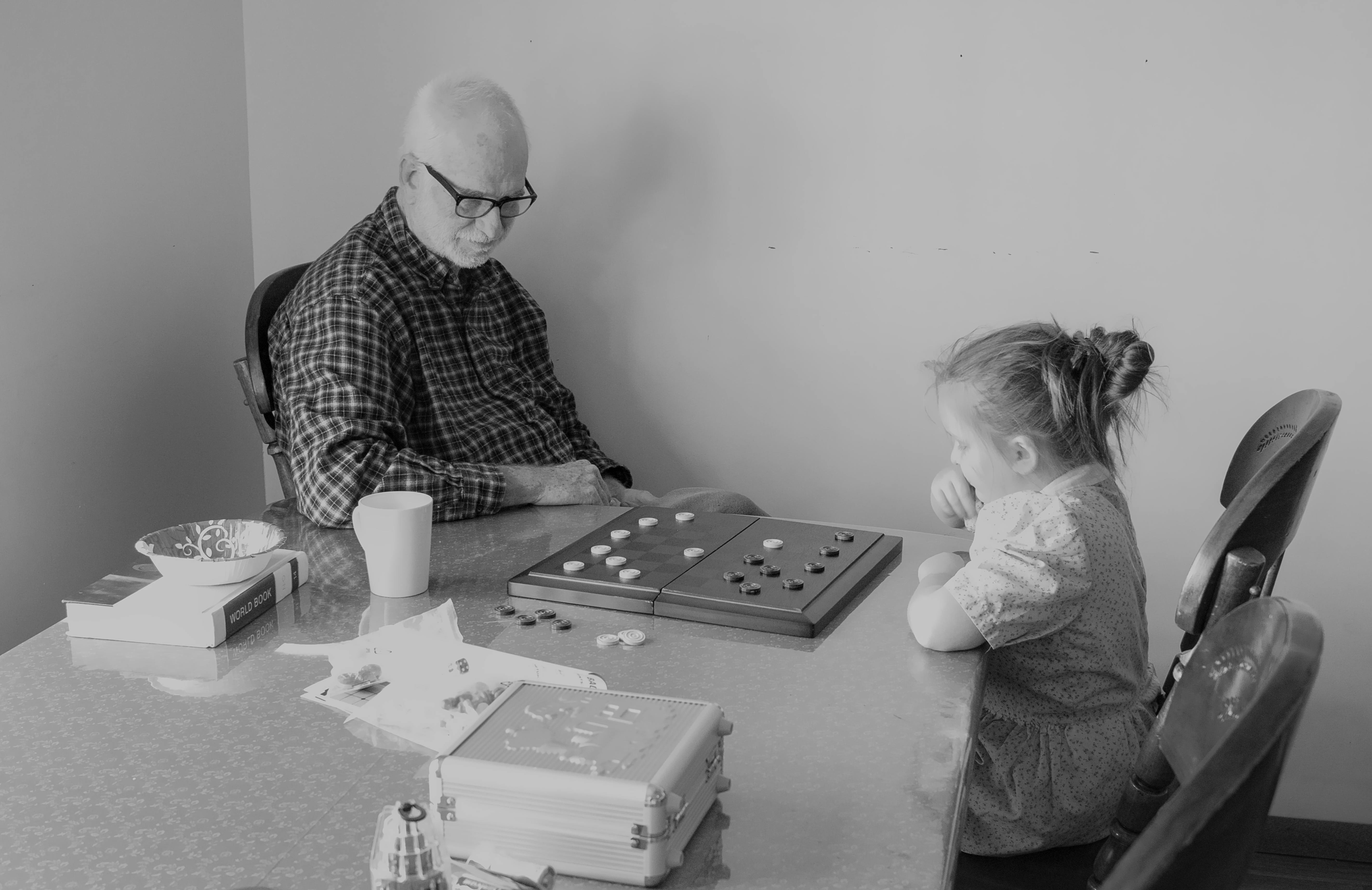Mr is the phrase that the theologian, philosopher and mystic Emanuel Swedenborg uses for his concept of the Guess Human.
Swedenborg wrote within a Christian framework, but I think his idea of tea Mr, as an image of transcendence, it is meaningful to both Christians and non-Christians. For example, the core of the message is the warmth of love and the light of wisdom – a healing power of illumination and warmth that comes beyond us. We can become deeply aware that these give life to our hearts and illuminate our minds.
From Swedenborg Mr He has a heart, head, and hands: unlike us, however, this is a heart of selfless compassion, a head of perfect wisdom, and hands of infinite power. Consequently, he wrote that each of us can only be a limited mirror image of this unlimited creative force.
Apparent paradox
Likewise, many religious people believe that the Divine is both within and outside of them. It seems a paradox if the Divine is experienced present within each one of us and at the same time flows in us from a transcendent source. In reality, a similar paradox has been accepted throughout the centuries in the teaching of the Hindu Upanishad Scriptures. They say my truth or Higher self (atman) is identical to Creator of all forms (Brahman). The danger here is to take this to mean that deep down, essentially “I am God.” But Swedenborg is careful to point out that our inner part does not belong to us, it is only the Lord’s. We can receive the divine without identifying with it.
Attitude towards the Lord
Perhaps it is worth mentioning that unless we can recognize what is divinely good present within our inner being, we could not know any universal goodness beyond our finite understanding.
According to Swedenborg, the Infinite itself is above all the heavens and above our interior: it can only manifest itself through the Divine Human, who exists only with the Lord: and the communication of the Infinite with finite beings is not possible at all from no other source.
According to another of his teachings, we must recognize this transpersonal source of our good intentions and at the same time act as if they are part of ourselves.
“Divine love consists in this, that it desires that what is its own be man’s, and this could not be if man did not feel and perceive what comes from the Lord as if it were his.” (Revelation explained 1138: 5 E. Swedenborg)
Need for an idea or image of transcendence with which to relate
I would suggest that in order to better tune into the power of love and wisdom, we need a clear idea or image to relate to. Because how could we have a relationship with a disembodied spirit?
Similarly, the Swedish-Borussian Paul Vickers, in his book Living with god it has suggested that when one is trying to communicate in prayer, there must be some idea about the Divine. As a result, many start with a picture of what they have learned as children. This is an image associated with a sense of love and the wisdom that goes with it. This is seen by Vickers as a human characteristic. No wonder religious people should think about God as a person because love and wisdom are ideally human. At the same time, the thought of a spirit of love seems opposite to something natural. This seems to be a contradiction.
However, Vickers points out that a helpful guide is the way we think about earthly loved ones. Many loving husbands cannot tell you the color of their wife’s eyes or any other details to provide a useful image from which one can recognize her. However, they are especially aware of the presence of that wife in the affection they know and in the character of their life. Similarly, a child will describe a parent in terms of the things they do together and the love and care shown, but cannot necessarily give a detailed visual description. So Vickers is saying that the thought of the divine within us is of the same type. Awareness of this presence and our dependence on it is similar to children’s reliance on their parents to care for them.
The historical Christ
The Jesus of the Gospel is the basis of Swedenborg’s idea of Divine human. The term he uses is Mr.
Most scholars agree that Jesus Christ existed historically saying that he was a Galilean Jewish religious teacher who gave his message by word of mouth: and was probably crucified for political and religious reasons.
His miracles, whether factual or simply symbolic, are considered to show healing power. And many religious people have seen him as a revealer of divine transcendence.
According to the biblical account, the historical Jesus showed loving-kindness toward those his society had condemned: tax collectors, prostitutes, and criminals. He healed the sick, did his best to teach those who wanted to learn, and was a good friend to his followers.
It is easier to remember someone when we think about their character. The New Testament describes Jesus as a very good person, with wisdom, humility, selflessness and eager to help everyone. These are human qualities. Like us, he sometimes endured hardships. In his case, it was emotionally surviving in the desert, and even torturing on the cross. Just as we can lose hope, Christ went through a time of lost hope that tested what Christians see as theirs. Guess spirit.
The Lord and the most intimate of Jesus
By referring to him as the Son of God, Christians view Jesus as the embodiment of the divine. However, you may be wondering what is special about Christ. Is not the divine also present in us?
According to Swedenborg, yes, we can have a transcendent goodness within us. But unlike Christ, it does not originate with us. In other words, we are only imperfect vessels that can receive divine life from its universal source. In contrast, it says that the essence of the Lord is the infinite origin of all that is good. So Swedenborg saw the innermost part of Jesus Christ as love and light itself.
According to the Gospel account, what Jesus said reveals the light of the world that shines in the darkness and illuminates all who open their eyes. The Lord’s face “shone like the sun, and his clothes became white as light.” (Matthew 17: 2)
Those who accept this point of view see in their life an image of the loving human wisdom that has existed from eternity. “The Word made flesh”.
“When we see Jesus, we see God; however, Jesus was human like us, so imagining his face can tell us something of what it is for a human to have his life completely aligned with the Divine.” (Rev. Nicki Caines, Anglican clergyman)
The eternal human aspect of the Divine
Swedenborg’s idea is that the Divine Himself has always been human: not from the physical body, but from the human qualities of love and wisdom that the Divine possesses to an infinite degree.
It says that we were created in the image of divine humanity.
“God is supremely human, and therefore each person is human to the extent that he receives love and wisdom.” (E. Swedenborg Divine Love and Wisdom 289)
Communicate with the Lord from person to person
When going through a personal crisis, most of us feel the need for emotional support. Don’t we like to have a friendly face to cheer us up? Ideally, it would be someone who is always available. No matter how much they want to help us, they may not be available when we need them. They may be busy rather than immediately available to us.
Many people of deep faith see such a friend in the compassionate face of God. The humanity idea of the Divine is a great source of comfort and strength for them. In their darkest hours, many of them are based on the belief that they are loved by the source of all good that has their eternal interests at heart.
As the Christian mystic Julian of Norwich wrote: “Everything will be fine and everything will be fine.”
In private prayer conversation, people of faith find a better understanding of themselves and of life. Who does not need food for the spirit as encouragement, acceptance, trust, hope or even a personal challenge. Sometimes we can worry about what feels like tremendously important. However, what we want may not be what we need. A wise friend can remind us of what is really important.
Humility of heart
People often appreciate that they need to make an effort to change. I think this is good. But for me this means not relying solely on my own efforts. I feel that I can only hope to conquer the lower forces of my mind by cooperating with divine power. Through humility of heart, perhaps we can learn to turn to the Lord to lift our spirits. We could do this, instead of relying on the illusion of self-reliance.
As I see it, if we struggle with our problems in The lords power, then a state of hope can replace our state of despair. For example, if you are alone, find the strength and courage to move towards the search for friends and community: also, if life is meaningless, find a sense of purpose: also when you feel guilty, feel a spirit of forgiveness and acceptance.
If we want acceptance and comfort, we may find it helpful to ask for help from the human aspect of the Divine, from person to person. At first glance, this humble attitude may seem childish. However, the Bible teaches that faith and trust in the Lord does not come to anyone except through the lens of childlike innocence. This is the attitude necessary for prayer.
“Unless you change and become like little children, you will never enter the kingdom of heaven.” (Matthew 18: 3)




